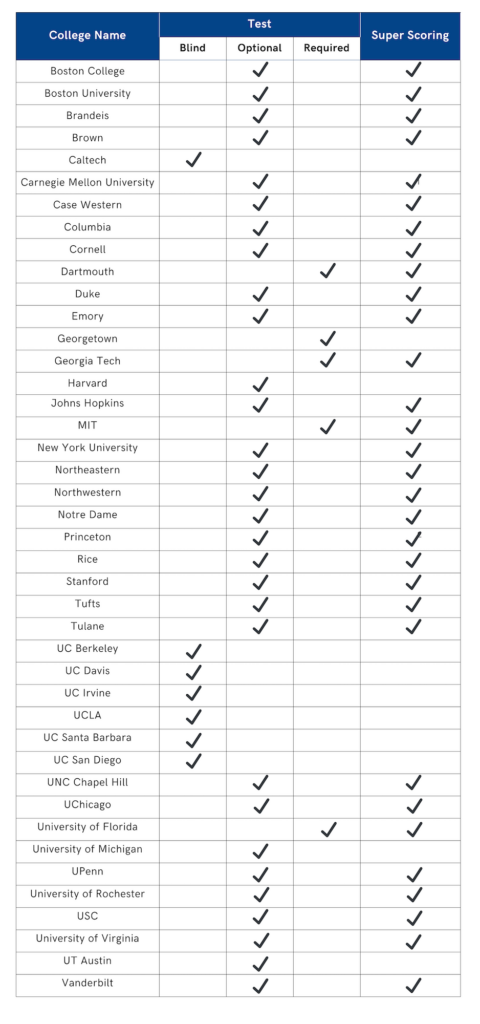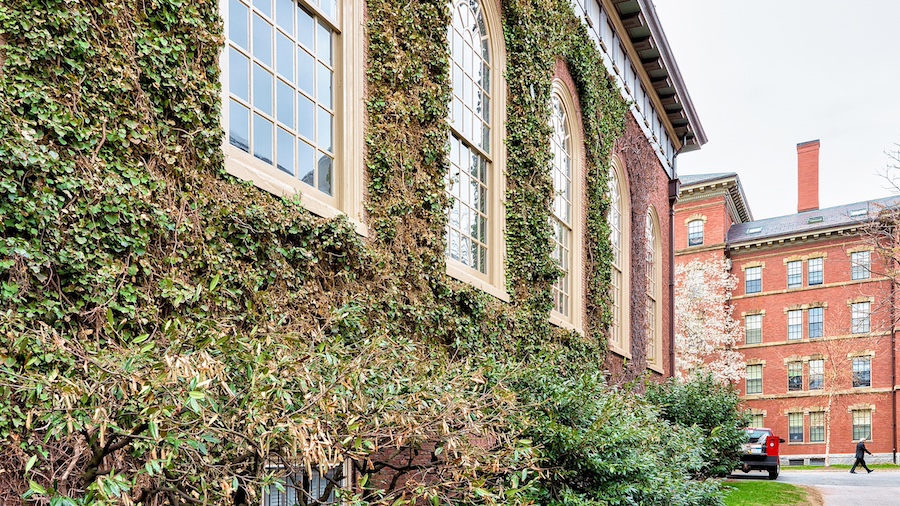The Covid 19 pandemic changed a great many things, and college admissions is among them. The biggest change was the sweeping introduction of test optional admissions, where students could submit standardized test scores if they had them, but were not required to do so. This made sense at the time, as lockdown restrictions made testing impossible for many students, and colleges wanted to be fair in their admissions policies.
Now, however, we may be seeing another shift. Colleges have had a few years to experiment with test optional policies, and many of their “temporary” measures are scheduled to be ending. Dartmouth has acted already; it remains to be seen if the rest of the Ivy League will follow. But what does this mean for you? Will you still be able to apply test optional? How important are standardized tests going to be for admissions going forward? We’ll explore all of these questions in this article; let’s get started!
Why Dartmouth is Ending Test Optional Admissions
On February 5, Dartmouth announced that beginning with applicants to the class of 2029, they would once again be requiring all students to submit standardized test scores, either the ACT or SAT.
The reasoning for this stems from a research report conducted by Dartmouth faculty at the behest of the administration. Their findings suggest that standardized test scores, when analyzed in the context of a student’s environment and paired with their high school grades, are a good indicator of future success at Dartmouth. This is especially the case when trying to identify top students at high schools admissions officers are less familiar with.
Their research further showed that many low income students were applying test optional because their scores were well below Dartmouth’s mean, despite having scores which are high for their school. We recommend this ourselves, because colleges are not always clear about how test scores are used in admissions. Dartmouth is now clarifying that if your score is among the highest in your area, then that is a significant boon to your application, even if it falls well below their median.
Going forward, Dartmouth requires all US-based students to submit either ACT or SAT scores, though they have no preference between them. International students may submit these scores, three AP scores, IB scores, or A-Levels (or an equivalent national exam). They also announce new data reporting policies, though we have yet to see what those will look like, to de-emphasize median and mean scores submitted.
A Note on Super Scoring
In addition to test optional admissions, schools can choose to practice (or not) super scoring. The way this works is simple; if you take the SAT or ACT multiple times, and get different scores on different sections each time, then universities will use the best score for each section.
As an example, let’s say you take the SAT three times, and get the following scores:
- Math 620, Verbal 640; Total 1260
- Math 710, Verbal 610; Total 1320
- Math 660, Verbal 700; Total 1360
In a superscored system, your total overall score would use your 710 math and 700 verbal, for a total of 1410. In a non superscored system, they would simply use your highest overall score, in this case 1360. Proponents of superscoring say that it helps students put their best foot forward, while opponents say it unfairly advantages students who can afford to take the test multiple times.
In either case, whether or not a college practices superscoring is entirely up to them. There is no standardization here either. While this may not impact your decision to apply, it can affect your decision to submit a score if they are test optional, as a superscored test is often more impressive than a non.
Which Colleges are Staying Test Optional?
Each college sets their own admissions policies, and decides individually if they want standardized test scores, and the importance they put on them. This is, of course, stressful for students, who then need to track all of these requirements individually. Luckily, fairtest.org tracks the exact test policies for every college in the US.
Now, this is a biased source; their stated mission is to end the use of standardized tests in college admissions generally. That said, their data here is still good, and quite thorough. That said, there are thousands of colleges in the US, and going through a list of all of them can be time consuming. For your convenience, we’ve collected the top 40 (more than 40 due to ties and movement on the ranking list, but 40ish) universities testing policies on the table below. We are also including whether or not these schools superscore standardized tests, if you submit them.

1: CMU will superscore the SAT, but not the ACT.
2: Princeton will superscore the SAT, but not the ACT.
3: Yale requires you to submit scores, but accepts the SAT, ACT, AP or IB scores.
Schools which are test blind do not review test results at all, so superscoring is meaningless for them.
Note that some schools have not yet made an announcement for next year’s admissions cycle yet, so it remains to be seen how many will follow Dartmouth’s lead. Most schools have not made a permanent choice one way or another, though we expect that to change within the next few years.
Why Schools Are Changing Their Minds
Some colleges, such as Wake Forest and UChicago, implemented test optional policies before the Covid 19 pandemic. They had time to experiment with these policies and the results they achieved, and decided that the kind of students who were applying and accepted were the kinds of students they wanted at their schools.
Most other schools went test optional suddenly; had it thrust upon them by the exigencies of the time. These policies were meant to be temporary, but got extended again (and again, and again). Now they are up for renewal again, and so these schools are faced with the same question: whether or not test optional admissions works well for them.
This brings us to one of the central problems with admissions; that each college sets their own policies, and acts independently of others. On the one hand this individualism can be a good thing; each college has a unique flavor and culture, and you are able to find one which uniquely suits you. When it comes to admissions though, it’s more of a challenge, as each school has its own essay questions, its own metrics, and now its own testing policy.
By analyzing data in different ways, and assigning different admissions priorities, universities come up with very different answers about whether or not test optional admissions are right for them. Students are left to follow these dictates as best they can.
What Does This Mean for You?
While test optional admissions was an interesting experiment, we expect things to settle down more in the coming months. Schools are going to choose one side or the other of the issue to come down on; either remaining test optional permanently like UChicago or Wake Forest, or returning to requiring all students submit scores, like MIT and Dartmouth.
There is no way to predict how each college will act until they have made their decision, but we do believe that Dartmouth may be an early sign the Ivy League will return to requiring tests as a whole, since they tend to act in sync on admissions matters. They are not required to do so, but they often choose to anyway.
We do think that many schools will choose to stay test optional, as the policy does have the result of increasing the overall median SAT and ACT scores at a college, making them appear more prestigious. This is a vanity thing, but colleges compete with each other all the time, and this is just another way to do it.
For your own admissions journey, you should now plan on taking either the SAT or the ACT (or both). While not all schools will require it, we expect many more to begin doing so. Even at the schools which are test optional, a great test score can help your chances of admission. While standardized tests may not be the most important part of your application, they are going to remain part of the admissions journey for most students going forward.
Of course, preparing for these tests can be a challenge. We have an article exploring the secrets of test prep, or if you want a more personalized approach, you can sign up for our test prep service. Our students see average score increases of over 100 points on the SAT, and we love helping you build your test taking skills.
Final Thoughts
Standardized tests have long been a part of college admissions; though their form has changed many times, they always purport the same function: to be a unified benchmark that all students can be compared against. While their success at doing this is debated, colleges still find merit in their use in admissions.
While the period of near-universal test optional admissions may be drawing to an end, it remains a popular policy, and will continue to be used by many more colleges than before 2020. The future remains uncertain, but we expect this to be an option at a number of top schools.
We hope that this article has answered your questions on this topic. We know college admissions can be confusing, especially since colleges can and do change their policies on a whim. If you want advice from us on testing, or any other aspect of the admissions process, schedule a free consultation today. We have a long experience guiding students along their college journey, and are always happy to hear from you.








